
Top 7 Air Conditioner to buy under 30,000 in India
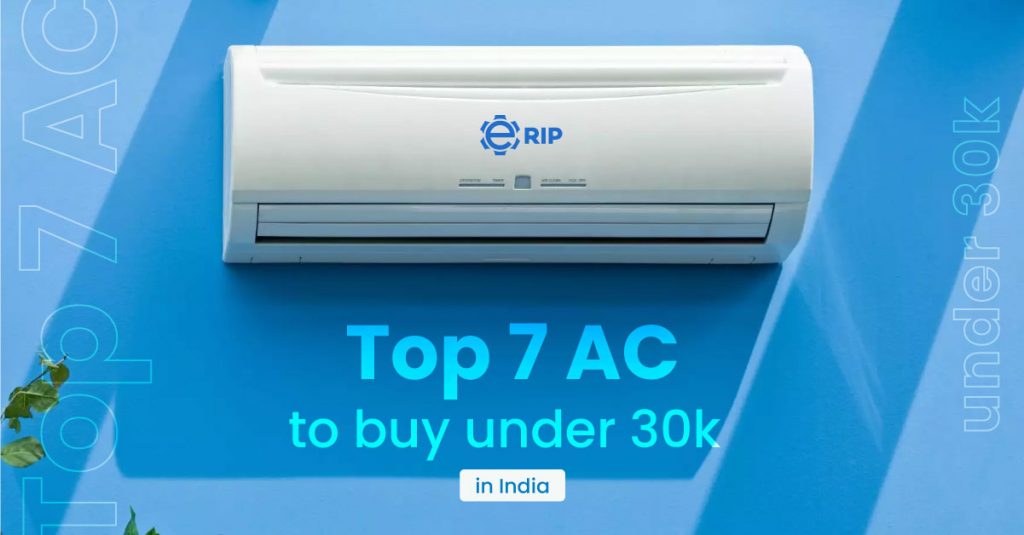
Looking for the Best Air Conditioner under 30000 rupees? You’ve just found it! Our team has done all the research for you and found The Top 7 Air Conditioner under 30000 rupees. Check them out!
Summer has arrived and the need of a good air conditioner is really important. Many brands manufacture air conditioners at different price ranges. But a decent air conditioner doesn’t have to do anything with the price. A decent air conditioner means it is able to cool the room with less amount of power consumption. Generally, an air conditioner can cool the hall in 40 minutes.
There are different types of air conditioners, i.e Window air conditioners, portable air conditioners, mini air conditioners.
There are many air conditioners in different price segments. But 30,000 is a decent range to get a good and long-lasting air conditioner.
It is hard to rank the air conditioner because each comes with different specifications and build quality. So, here we have shortlisted 7 air conditioners for your home and office, that consume less power and comes with the necessary technology.
Best Air Conditioner in India
1. Panasonic 1.5 Ton 5 Star Wi-Fi Inverter Split Air Conditioner

Features:-
- Capacity:- 1.5 ton
- Energy Star Rating:- 5 Star
- Built-in Alexa and Google Assistant control
- Wi-Fi and App Control
- Automatically adjusts power consumption depending on heat load.
- 10 years warranty on compressor
2. Hitachi 1.5 Ton 5-Star Inverter Split AC

Features:-
- Capacity: 1.5 Ton
- Energy Star Rating: 5 Star
- Split AC with inverter compressor
- Expandable Inverter
- Achieves set temperature faster
- Grooved copper ensures faster cooling
- 10 years warranty on Compressor
3. LG 1.5 Ton 5 Star AI DUAL Inverter Wi-Fi Split AC
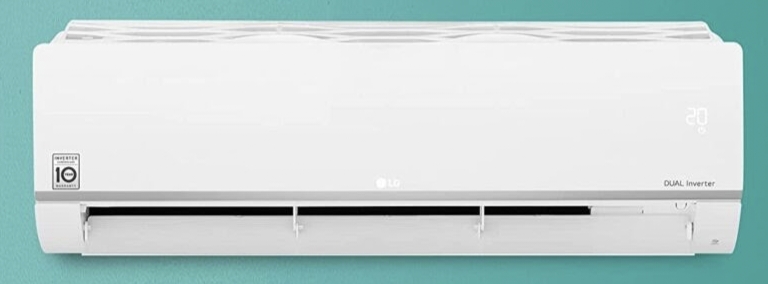
Features:-
- Capacity: 1.5 Ton
- Energy Star Rating: 5 Star
- Split AC with inverter compressor
- Adjusts power depending on heat load
- Auto-detect room condition
- AI Convertible 6 in 1 cooling
- 10 years warranty on compressor
Subscribe to Erip
Get the latest technology news, reviews, and opinions on tech products right into your inbox
4. Samsung 1.5 Ton 3-Star Inverter Split AC
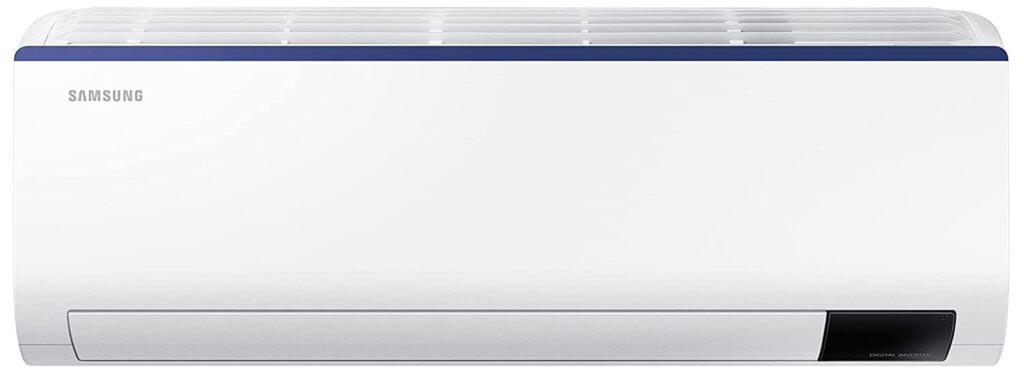
Features:-
- Capacity: 1.5 Ton
- Energy Star Rating: 3 Star
- Split AC with inverter compressor
- Ensures even cooling around the room
- Uses less energy based on heat
- 5 Step convertible Cooler
- 10 year warranty on compressor
5. Sanyo 1.5 Ton 5-Star Dual Inverter Wide Split AC
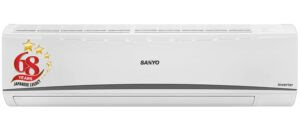
Features:-
- Capacity: 1.5 Ton
- Energy Star Rating: 5 Star
- Dual inverter compressor
- Uses less energy based on heat
- Glacier mode for instant cooling
- Eco Mode available
- 10 years warranty on compressor
6. IFB 1.5 Ton 5-Star Split Inverter AC
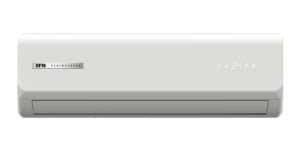
Features:-
- Capacity: 1.5 Ton
- Energy Star Rating: 5 Star
- Split AC with inverter compressor
- Ensures even cooling around the room
- Peak efficiency even in heat wave conditions
- Automatically swing in two directions
- 10 years warranty on compressor
7. Blue Star 0.8 Tons 3 Star Inverter Split AC
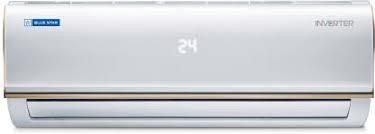
Features:-
- Capacity: 0.8 Ton
- Energy Star Rating: 3 Star
- Variable speed compressor
- Adjusts power depending on heat load
- Requires low maintenance
- Budget friendly
- 10 years warranty on compressor
How does an Air Conditioner work?
- Firstly, the system takes in warm air from the room.
- Then the warm air flows over the cold evaporator inside the system which cools down the air and the dehumidifier removes excess moisture from the air.
- The coolant present in chiller pipes absorbs the heat and evaporates it. Turning cold liquid into warm gas.
- This warm air is pumped outside and the coolant flows through the compressor unit and the condenser turns it back into a cool liquid.
- Cold air is then recirculated into the room, mixing it with air present in the room, cooling down the temperature.
Types of Air Conditioners
- Residential Air Conditioning
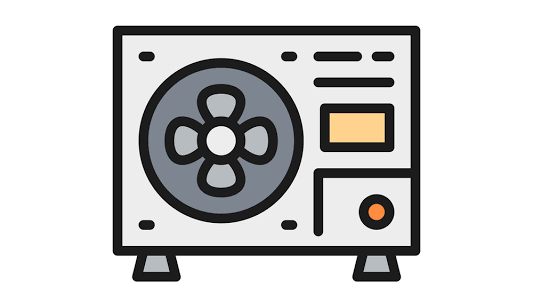
What is a Residential Air Conditioner?
Air conditioners that are used in houses for air conditioning in our house are called residential air conditioners. They are bigger in size and need more care.
- Commercial Air Conditioning
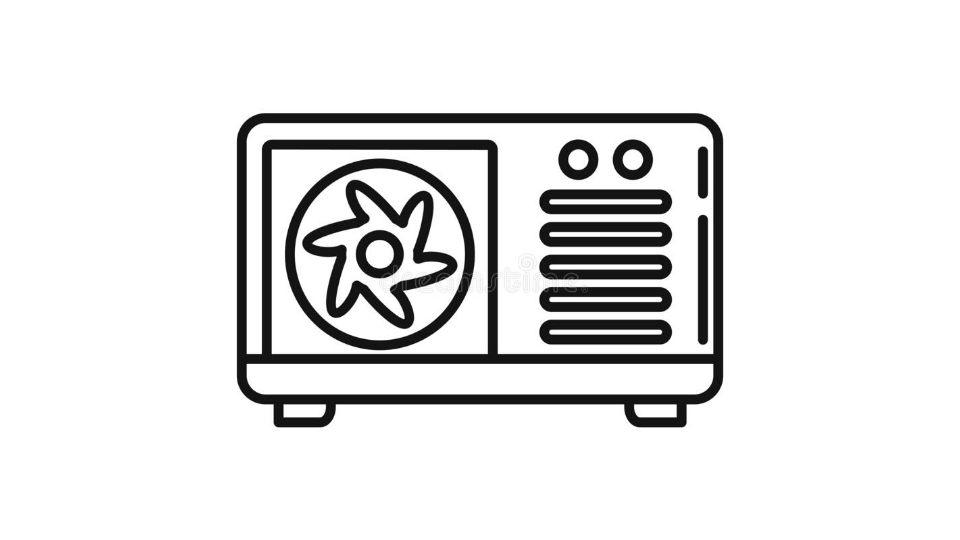
What is a Commercial Air Conditioner?
Air conditioners used in commercial places such as offices, shopping malls, and hospitals are called commercial air conditioners. They are usually average size, size depending on the area to be cooled.
Difference Between Residential and Commercial Air Conditioning?
- Size – Residential air conditioning systems are smaller than commercial air conditioning systems, because commercial places are generally bigger than residential areas, so a bigger Air Conditioning system would be required to make the place cooler.
- Placement – Generally, condensers of Residential air conditioning systems are installed alongside the building or in the backyard, but in commercial systems, it is installed on the roof of the building which saves a lot of space and noise from coming inside the building.
- Drainage System – The drainage system in Commercial Air conditioners are generally bigger because they cool larger areas, so additional moisture is cycling through the system. Whereas, in residential air conditioning systems lesser space is cooled and so the moisture in the system is less.
- Maintenance and Installation – Installing a commercial air conditioner costs a lot and highly skilled technicians are required to ensure perfect and safe installation of the system and maintenance of these systems is also costly and Residential Air Conditioners.
- Capacity – The power capacity of Residential ACs ranges from 2kW to 25kW. The size of commercial units is usually bigger, so their power capacity ranges from 10kW – to 100kW.
- Features – Residential systems have comparatively more features than Commercial systems because commercial places only need a controlled temperature, not much more features.
- Life Span – Larger systems are expected to have a longer life span, so commercial systems have a longer lifespan than Residential systems.
- Components – ACs at home use regular parts and some manufacturer-specific parts. Commercial systems need genuine and high-quality parts because they tend for longer use.
- Tags: ac, Ac under 30k, Top 7 Air Conditioner
Related News


iPad mini 5 front glass replacement in India

iPad 7 th generation front glass replacement in India
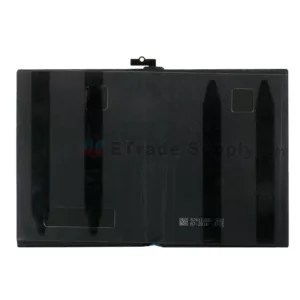
iPad 7th Generation Screen Replacement in India
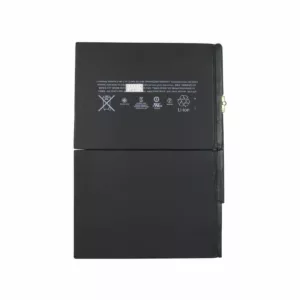
iPad 8 th generation Battery replacement in India

iPad 6th Generation Screen Replacement in India

iPhone 14 Back Glass Replacement in India

iPhone’s Genuine Apple Display Warning Message

Apple Non-Genuine Battery Warning Messages
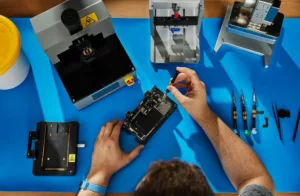
How to know when it is time to replace your iPhone battery?

MacBook Air M1 Display Price in India

iPhone 12 pro back glass replacement in Bangalore, India
Never miss any important news. Subscribe to our newsletter.
Recent News

iPad mini 5 screen replacement in India

iPad mini 5 front glass replacement in India

iPad 7 th generation front glass replacement in India
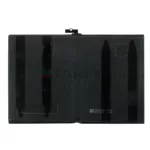
iPad 7th Generation Screen Replacement in India
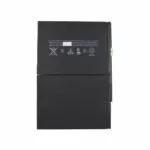
iPad 8 th generation Battery replacement in India


